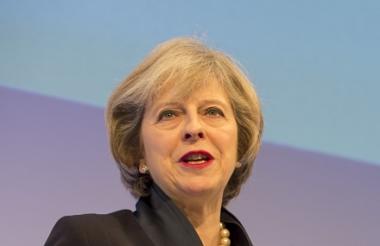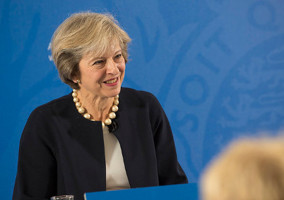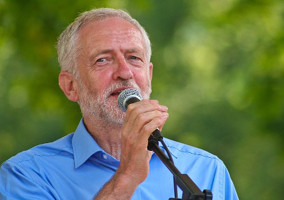Theresa May has yesterday launched the Conservative Party’s manifesto Steve Clapperton from the Charities Aid Foundation on what we’ve discovered.
1. Burning injustices
Upon taking office, the Prime Minister set out her vision for tackling a number of ‘burning injustices’ that she had identified as facing the country. Many of these form the basis for the Conservative Party’s manifesto –underpinned by what we might call ‘Mayism.’ On areas such as tackling the mental health crisis, providing support to asylum seekers and drawing up a charter to protect digital users, the Conservatives see a role for charities, whilst areas such as preventing domestic violence and tackling homelessness also naturally lend themselves to collaboration between charities and government. But charities also have a vital role to play in advocating for those affected by the injustices that Theresa May has identified - the gender pay gap, racial disparity, the stigma of mental health and disability discrimination to name a few. Charities’ ability to speak up for vulnerable and marginalised people must be respected if they are to maximise their ability to help tackle these injustices.
2. Soft power
The Conservative Party’s manifesto states that “we have the greatest soft power of any nation.” The ability to influence other countries and promote the values that we hold dear is going to be essential over the next few years, as the impact of Brexit on our international relationships becomes clear. The manifesto uses culture as an example of one way that the UK can wield soft power and amplify our voice – the same rationale applies to civil society. Thousands of British charities operate across the world, and the relationships that they have developed and the impact that they made offers great potential for helping the UK to strengthen existing relationships abroad, and develop new ones. Charities must be at the heart of the UK’s soft power strategy.
3. Shared Society
Earlier in the year, the Prime Minister gave a speech setting out her vision of a ‘shared society.’ Today’s manifesto makes no mention of that. Whilst some of the themes that the Conservative Party focuses on reflects the content of Theresa May’s speech to the Charity Commission, dropping the shared society brand is surprising. It is possible, however, that this is a decision taken because the party saw the troubles that can arise when policies are beholden to an overall political vision or brand, as we saw with the Big Society. Charities might want to take the optimistic approach and assume that the rhetoric and themes of the shared society will persevere if the Prime Minister is re-elected, even if the language does not.
4. Strengthening communities
Recent months have seen a number of concerns raised about community cohesion, particularly in light of some of the rhetoric before and after the EU Referendum. Proposals to involve charities in helping to tackle disharmony and bring communities back together are logical and particularly relevant for those operating on the ground at a local level. Indeed, CAF has called for charities to help monitor levels of community cohesion and work with central and local government to address issues where they do arise. This manifesto also sees a role for charities in helping to tackle extremism. Whilst there is undoubtedly a role for charities to play in promoting shared values and unity, helping to develop the concept of community and working with government to tackle issues such as extremism when they arise, it is important that their ability to unite communities is not weakened. Charities need to be allies of government, but also depend on being trusted within communities, and organisations will be wary of any new responsibilities that could weaken this community tie.
5. A vision for the future
Like the other manifestos that we have seen so far, the Conservative Party’s fails to offer a comprehensive vision for the role that charities can play, and makes no attempt to increase participation in giving and volunteering, two concepts which have been entirely neglected by the political debate during this campaign. Indeed, notably absent, too, is a repeat of the 2015 manifesto commitment to giving employees three days of paid leave for volunteering. Charities have so much to offer the country, but government needs to make the most of the contribution that they can make. With so many opportunities for positive collaboration, all political parties need to do more and work in tandem with the charity sector to tackle the challenges that the country faces. In that regard, this election has so far been a missed opportunity for policymakers to draw on charities’ experience, expertise and valued place in society.
Steve Clapperton leads the campaigns and public affairs team at the Charities Aid Foundation
Related articles












